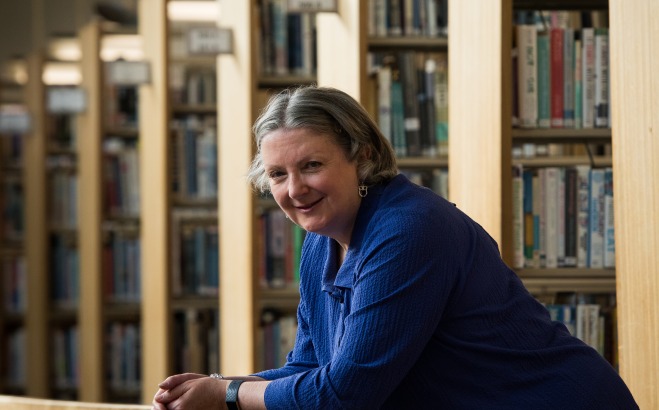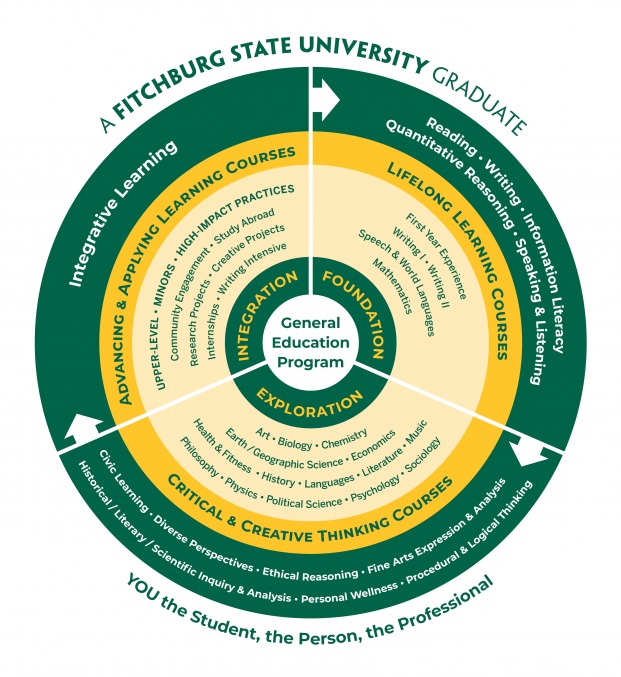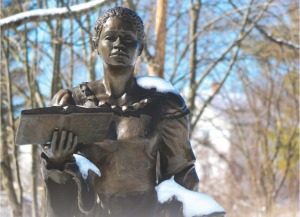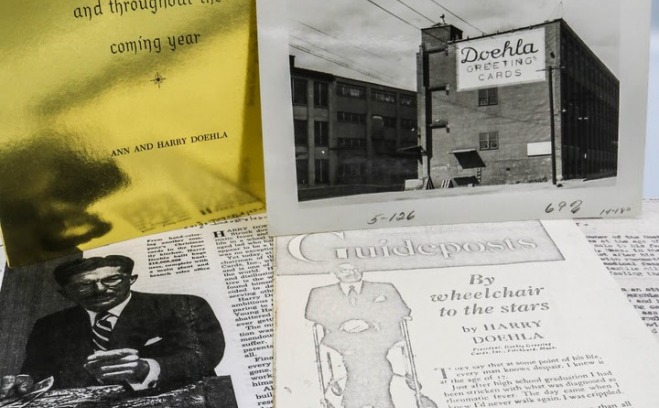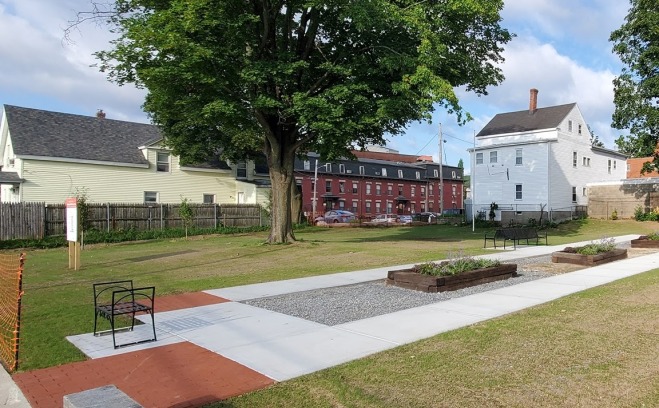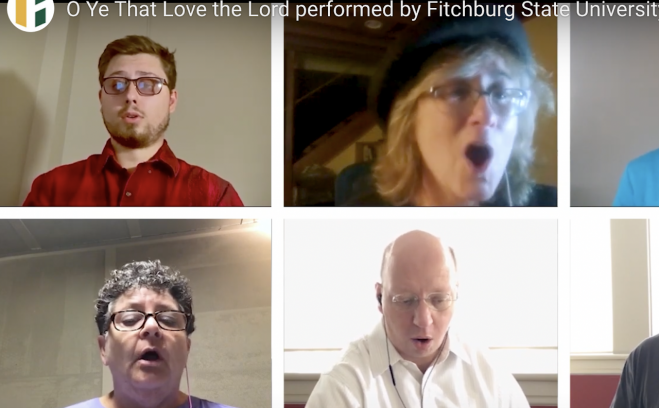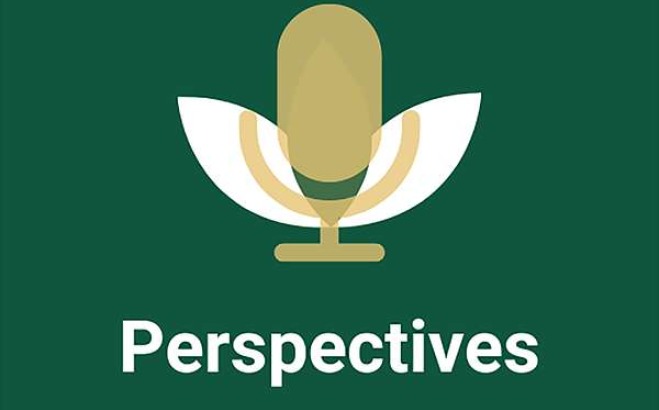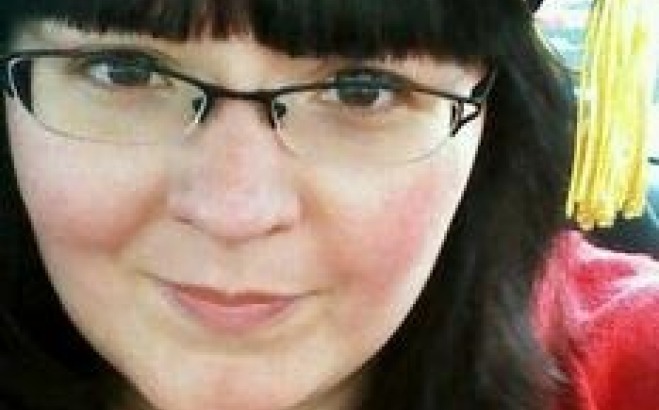Student Learning Showcase
The Curriculum in Action
Foundation
Foundations for Lifelong Learning
Exploration
Critical and Creative Thinking Across the Disciplines
Integration
Advancing and Applying Liberal Arts and Sciences Learning
Overview of the Program
Foundation: Foundations for Lifelong Learning
Foundation courses are mostly taken in the first year and are intended to help you develop the skills necessary to succeed personally, academically, and professionally as well as increase your familiarity with campus resources. In these five courses, you will focus on college-level reading, writing, information literacy, quantitative reasoning, and speaking and listening (through speech or World Languages).
- FYE
- First Year Writing Program
- Mathematics
- Speech (English Studies)
- World Languages (Humanities)
- Lifelong Learning
Benefits:
- Foundational skills
- Cohesive first year to help build a toolkit for student success
Exploration: Critical and Creative Thinking across the Disciplines
Exploration courses will allow you to experience topics from different viewpoints and use a variety of methods to think about our world - past, present, and future - as well as build upon the skills you develop in the Foundation. In these nine courses, you will be exposed to a number of artistic, civic, diverse, ethical, historical, literary, and scientific perspectives while expanding your approaches to thinking and wellness.
- Personal Wellness
- Campaign Resources
- Counseling Services
- Disability Services
- Recreation Services
- Civic Learning
Benefits:
- Building on Foundation skills
- Creative Thinking
- Critical Thinking
- Digital Literacy
- Information Literacy
- Quantitative Reasoning
- Reading
- World Languages, Speaking & Listening
- Writing
- Breadth of exploration and exposure
- Balance of interdisciplinary and disciplinary
Integration: Advancing and Applying Liberal Arts and Sciences Learning
Integration courses provide the opportunity to combine what you have learned in the General Education program and your major to think about more advanced ideas and problems. In these three courses, you will learn how to take knowledge and skills from different perspectives and apply them in new ways. You will also participate in a high-impact, experiential learning experience, ranging from community engagement and study abroad to independent research and internships.
- Undergraduate Conference for Research and Creative Practice
- Douglas and Isabelle Crocker Center for Civic Engagement
- Office of International Education: Study Abroad
Benefits:
- Continued development of Exploration learning
- Ability to choose focus
- Potential to take a minor to satisfy requirement
- High-impact practice
- Civic Engagement
- Experiential Learning/Internship
- Student-Faculty Research Project
- Student-Faculty Creative Project
- Study Abroad
- Team Teaching/Learning Community
- Writing Intensive
Program Resources
- General Education Program Brochure (PDF)
- General Education Program for Transfer Students Brochure (PDF)
- Liberal Arts and Sciences Program (students admitted prior to Fall 2021)
- Resources
- Interactive Requirements Tool (coming soon)
- How to Guide: Integration
- Skill Guides (coming soon)
- Academic Coaching and Tutoring Center
- General Education Career Action Plan (PDF)
- Teaching Resources
- Syllabi materials: Learning outcomes and skills icons
- General Education Learning Outcomes, Rubrics and Guidance Documents
- Skill Guides (coming soon)
- Center for Teaching and Learning (CTL)
- Advising Resources
- General Education Program Brochure (PDF)
- General Education Program for Transfer Students Brochure (PDF)
- General Education Career Action Plan (PDF)
- Liberal Arts and Sciences Program (students admitted prior to Fall 2021)
- Interactive Advising Tool
- How to Guide: Integration
- Courses with Designations
- AUC Resources
Program Organization and Procedures
The Fitchburg State University General Education Program Area is designed to serve as the centralized site for general education as a discrete yet interconnected university program. It facilitates the overarching goals and maintenance of the program, including systematic assessment of learning outcomes, builds relationships with departments and offices across campus in order to manage implementation, and emphasizes how the program intersects with and supports majors. To achieve this purpose, the Program Area seeks to communicate the value of a liberal arts and sciences general education curriculum to all university stakeholders. It consistently evaluates the program as a whole in order to improve its effectiveness in helping students achieve learning outcomes and ensure that the program is aligned with the University Strategic Plan and Institutional Learning Priorities.
Procedures
- The core membership is comprised of the Program Area Chair, the Dean of Arts and Sciences, the AUC General Education Subcommittee Chair, the First-Year Experience Coordinator, the Director of Assessment, three Department Chairs representing different schools, and three faculty members representing the three tiers of the program.
- Regular meetings are open to any university personnel with a vested interest in the General Education program, especially faculty teaching courses in the curriculum.
- Programmatic modifications to the General Education program are proposed through the AUC governance process. Departments maintain control over developing and scheduling General Education courses, and governance committees maintain control over approving individual courses.
Program Area Members
- Kisha Tracy, Chair, General Education Program Area
- Özge Özay, Assistant Coordinator, General Education Program Area
- Franca Barricelli, Associate Vice President for Academic Affairs
- Laura Garofoli, FYE Coordinator
- Sara Levine, Dean of Arts and Sciences
- Denise Sargent, Chair Education
- Peter Staab, Chair, Mathematics
- Jeff Warmouth, Chair, Communications Media
- Ambassador and Assessment Program 2025-26
- Chris Cratsley (Quantitative Reasoning, Procedural and Logical Thinking)
- Jessica Alsup (Personal Wellness, Ethical Reasoning, Integrative Learning)
- Denise Simion ad Renée Fratantonio (Information Literacy, Reading, and Writing)
- Ana Emlinger (Civic Learning, Diverse Perspectives, World Languages Speaking and Listening)
Spring 2026 Meetings
- January 28, 2026, 3:30 – 5 p.m.
- February 25, 2026, 3:30 – 5 p.m.
- March 18, 2026, 3:30 – 5 p.m.
- April 29, 2026, 3:30 – 5 p.m.
Peter Elliott, Professional Writing and English Studies ('26)
Professor Kisha Tracy, English Studies Department
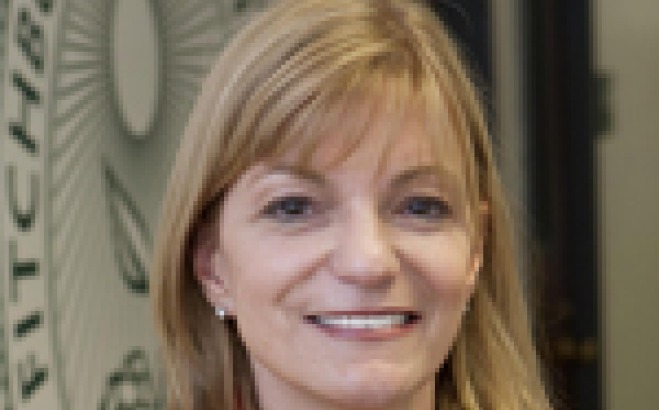
Anna M. Clementi
